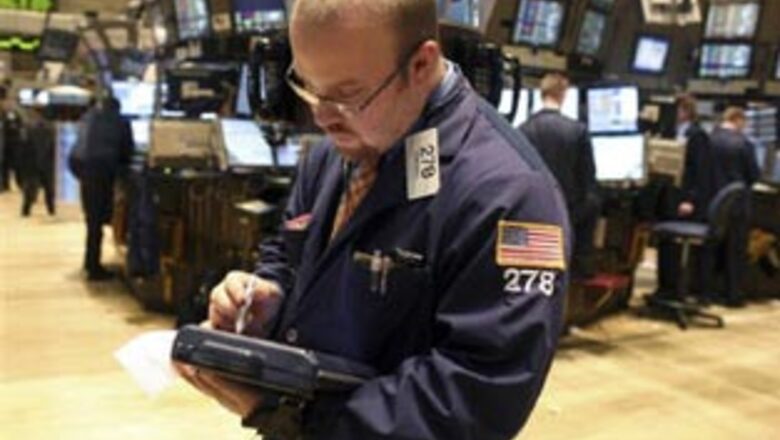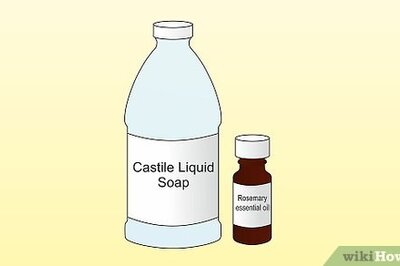
views
New York: Global stocks plunged and bond prices fell on Tuesday as fears about a deep recession and a battered financial sector gave President Barack Obama a sobering welcome on his first day in office.
The benchmark S&P 500 and Nasdaq market both fell more than five per cent as equity prices crashed through key support levels holding Wall Street back from testing lows set in late November, the nadir so far of the bear market.
US Treasuries turned mostly positive as the big stock losses, led by plunging bank shares in both the United States and Europe, revived a bid for safe-haven government debt.
But longer-date bonds fell on worries about a rising supply of debt needed to fund government bailouts of the financial sector and to lift economies from a sharp downturn.
The euro traded below $1.2900 for the first time since December 10 on concern that the euro zone will suffer a deep recession.
Optimism over Obama, who was sworn in as the 44th US president in Washington, also boosted the dollar.
Sterling fell to a 7-1/2-year low after the Royal Bank of Scotland on Monday announced the biggest loss in British corporate history, setting a negative tone for the financial sector both in Europe and the United States.
Worries about the financial spread after State Street Corp, the world's biggest money manager for institutions, on Tuesday said it needs to raise capital, dragging US banking indexes to lows last seen in 1995.
"Stocks are getting crushed because of the never-ending tragedy that has fallen upon the banking sector," said Tom Sowanick, Chief Investment Officer of hedge fund Clearbrook Financial LLC in Princeton, New Jersey.
State Street's stock fell 59 per cent while shares of Bank of America shed 29 per cent and Citigroup fell 20 per cent, hitting their lowest levels since the early 1990s.
US markets had been closed on Monday for the Martin Luther King, Jr. holiday. European banking shares also fell heavily, extending Monday's slide, with Lloyds Bank sliding 31 per cent, Barclays down 17 per cent and both BNP Paribas and Societe Generale off 13 per cent.
"Once you have lost confidence, it takes four to five times longer to regain confidence," said Franz Wenzel, strategist at AXA Investment Managers in Paris.
The environment remains shaky and more write-downs from bad loans are likely from last year's fourth quarter and the first quarter of 2009, Wenzel said.
The Dow Jones industrial average closed down 332.13 points, or 4.01 per cent, at 7,949.09.
The Standard & Poor's 500 Index fell 44.90 points, or 5.28 per cent, at 805.22.
PAGE_BREAK
The Nasdaq Composite Index shed 88.47 points, or 5.78 per cent, at 1,440.86.
In Europe, the FTSEurofirst 300 index of top European shares closed down 2.12 per cent, or 16.75 points, at 774.48.
The dollar rose against a basket of major currencies, with the US Dollar Index up 1.29 per cent at 86.236.
Against the yen, the dollar fell 0.95 per cent.
The euro fell 1.69 per cent at $1.2888.
"The inauguration is crystallising all expectations that the US economy will be the first to recover from the recession," said Marco Annunziata, Global Chief Economist at UniCredit, Italy's second-biggest bank, in London.
The dollar, however, pared gains against the euro when Obama failed to disclose details on how he plans to address the economic crisis.
The benchmark 10-year US Treasury note fell 11/32 in price to yield 2.38 per cent.
The 30-year US Treasury bond fell 38/32 in price to yield 2.97 per cent.
The two-year Treasury note's price rose 1/32 for a yield of 0.71 per cent, versus 0.73 per cent late Friday.
In Europe, investors demanded record high premiums to buy several non-benchmark German debt on worries there could be more downgrades after Standard & Poor's cut the credit ratings of both Spain and Greece recently.
Oil prices jumped six per cent as traders sought to square positions before the expiration on Tuesday of February futures contracts.
US February crude settled up $2.23 at $38.74 a barrel, while March crude fell $1.73 to $40.84 a barrel.
London Brent fell 88 cents to settle at $43.62 a barrel.
"There's a short-squeeze play going on ahead of February crude's expiration as there are still some traders heavy with shorts on this last trading day for the contract," said Phil Flynn, an analyst at Alaron Trading in Chicago.
Gold rose, with spot prices gaining $20.20 to $855.60 an ounce.
"It looks like they are waking up to the situation of the banking crisis. It's flight to quality, without a doubt. The rest of the world must be really going off the deep end," said Jonathan Jossen, a gold options floor trader.
The MSCI index for Asia-Pacific stocks outside Japan slid 3.2 per cent. Japan's Nikkei fell 2.3 per cent.


















Comments
0 comment